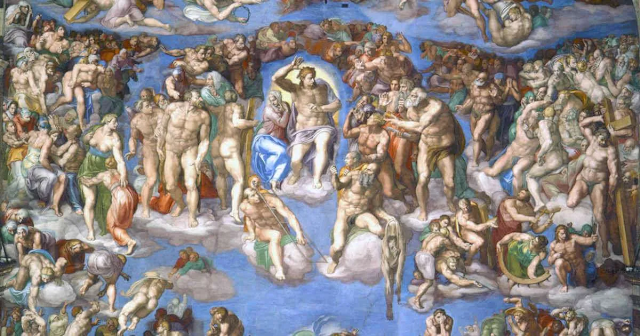Saint Gabriel of Our Lady of Sorrows
The Reciprocity Principle
Brethren, in the Old Testament reading of today we see the example of Daniel, a man of great faith in God's mercy and just ways, who prayed daily, not only for himself, but for his own people, and for his persecutors as well. Daniel was 'shamefaced' before God because he recognized that his own people who had been called and chosen by God as the people of Israel, were now suffering in exile due to their sins and unfaithfulness to the covenant God had made with them (see Daniel 9:4-10). Daniel did not sit in judgement over the failings and sins of his own people, instead he pleaded with God for compassion, pardon, and restoration. Our shame will turn to joy and hope if we confess our sins and ask for God's healing love and mercy. Lent is actually meant for this, are we using wisely?
Jesus in the Gospel today is teaching us the reciprocity principle. "Stop judging and you will not be judged. Stop condemning and you will not be condemned. Forgive and you will be forgiven. Give and gifts will be given to you; a good measure, packed together, shaken down, and overflowing, will be poured into your lap. For the measure with which you measure will in return be measured out to you." Focusing on some of these reciprocities, why does Jesus tell his followers to "not judge lest they be judged"? Jesus knew the human heart all too well. We judge too quickly or unfairly with mixed motives, impure hearts, and prejudiced minds. The heart must be cleansed first in order to discern right judgement with grace and mercy rather than with ill will and vengeance. Let's not judge so that we will not be judged.
Perhaps one of the reasons that many people struggle with being judgmental and condemning others is because they lack a true awareness of their own sin and their own need for forgiveness. We live in a world that often rationalises sin and downplays the seriousness of it. That’s why the teaching of Saint Ignatius is so important for us today. We need to rekindle a sense of the seriousness of our sin. Saint Ignatius of Loyola, in his guide for a thirty-day retreat, has the retreatant spend the first week of the retreat focusing upon sin, judgment, death and hell. The wisdom of this approach is that after a week of these meditations, retreatants come to a deep realization of just how much they need the mercy and forgiveness of God. They see their need more clearly, and a deep humility is fostered within their soul as they see their guilt and turn to God for His mercy. This is not done simply to create guilt and shame. It’s done to foster a desire for mercy and forgiveness.
If you can grow in a deeper awareness of your own sin before God, one of the effects will be that it is then easier to be less judgmental and condemning of others. A person who sees his sin is more apt to be merciful to other sinners. But a person who struggles with self-righteousness will most certainly also struggle with being judgmental and condemning.
Jesus explained in this Gospel what he expects when he asks for mercy: Stop judging. Stop condemning. Forgive. Too often we compare ourselves to others because we want to justify ourselves. That leads to judging and condemning others. Instead, we should strive to be merciful because everyone is living a difficult life! Mercy requires that we assume everyone is doing their best and, like ourselves, often falling short of their own ideals. By looking at others this way, forgiveness becomes much easier.
We should forgive so that we can also be forgiven. The Father is infinitely merciful. He is ready to forgive anyone who asks for pardon, no matter how big the sin is. He forgave the disobedience of Adam and Eve, the greatest sin in history. He would have forgiven Judas if he had asked for forgiveness. Even if our desire for forgiveness is not perfect, even if our motivation is only to avoid going to hell rather than sorrow for having hurt others or offended God, the Father is willing to forgive. The Father’s mercy is to be the measure of his disciples’ mercy. His mercy should be our mercy, if he forgives, we should be able to forgive others.
Jesus didn’t merely ask us to forgive, he asked for our generosity. We are not in this world merely to seek our own salvation. Jesus asks us to reach out and share our God-given gifts with others. An old saying warns, “No one gets into heaven by themselves, everyone must bring a friend.” Every day, we have opportunities to help others get one small step closer to heaven. And we grow closer to Jesus when we help others to grow closer to him.
Let us Pray.
Lord, you have asked me to be merciful and have taught me what mercy means. If I want to be merciful as the Father is merciful, I need to love others and help to draw them closer to you. You have given me many gifts and talents which I sometimes use to serve myself, for my own comfort, entertainment, and pleasure. Help me to learn what mercy really is and to use my gifts to help others, as you intended. Amen
Be blessed.


No comments:
Post a Comment